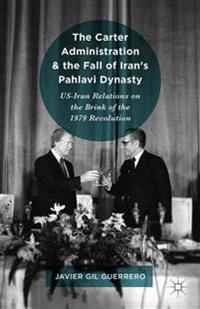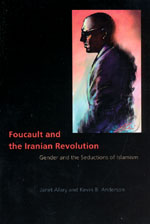Majestic Failure: The Fall of the Shah - Hardcover: Bengali 1990
Majestic Failure: The Fall of the Shah - Hardcover
60,00 $
Dela
Wishlist
ISBN:
9780226989280
Förlag:
The university of Chicago Press
Åldersgrupp:
Vuxen
Sidor:
350
Vikt:
790 g
Produktmått:
15 x 23 cm
Bokomslag:
Kartongbok
From Library Journal:
The pursuit of historical analysis using psychological models and methodologies (i.e., "psychohistory") is often tempting and sometimes productive as seen in this psychological portrait of the Shah of Iran. Offering the premise that the Shah lost his throne by his own efforts or lack thereof, Zonis addresses four basic elements of the Shah's psychological character (belief in divine protection, identification with other powerful people, sharing the strength of others, belief in the adoration of the Iranian people) and documents his deterioration that began with the discovery of his cancer. Ending his book with a consideration of what the United States can learn from its role in the Shah's fall, Zonis offers some recommendations for American policymakers. The last decent psychological analysis of the Shah was Ryszard Kapuscinski's Shah of Shahs ( LJ 3/15/85); Majestic Failure is "better" only because of its dispassionate tone and objectivity. However, Zonis's book is not for the casual reader. Recommended for large, subject-area collections.
- David P. Snider, Casa Grande P.L., Ariz.
Copyright 1991 Reed Business Information, Inc.
From Publishers Weekly:
In this intriguing psychoanalytic study, the author suggests that the Shah of Iran (1919-1980) maintained his fragile equilibrium through four "psychic twinships," or relationships: with his sister, Princess Ashraf; with Ernest Perron, a friend from Swiss school days; with Assadollah Alam, his last minister of court; and finally, with the United States government. As these relationships disintegrated during the 1970s, Zonis avers, the Shah's core character traits (passivity and dependence) became dominant, rendering him incapable of coping with the challenges of the Iranian Revolution. Applying psychoanalytic techniques, Zonis, professor in the the University of Chicago's psychology department and business school, and an acquaintance of the late ruler, examines the Shah's lifelong fear of his father, his bristling disdain for women, his narcissism and grandiosity. Photos.
Copyright 1991 Reed Business Information, Inc.
"About this title" may belong to another edition of this title.
more
From Library Journal:
The pursuit of historical analysis using psychological models and methodologies (i.e., "psychohistory") is often tempting and sometimes productive as seen in this psychological portrait of the Shah of Iran. Offering the premise that the Shah lost his throne by his own efforts or lack thereof, Zonis addresses four basic elements of the Shah's psychological character (belief in divine protection, identification with other powerful people, sharing the strength of others, belief in the adoration of the Iranian people) and documents his deterioration that began with the discovery of his cancer. Ending his book with a consideration of what the United States can learn from its role in the Shah's fall, Zonis offers some recommendations for American policymakers. The last decent psychological analysis of the Shah was Ryszard Kapuscinski's Shah of Shahs ( LJ 3/15/85); Majestic Failure is "better" only because of its dispassionate tone and objectivity. However, Zonis's book is not for the casual reader. Recommended for large, subject-area collections.
- David P. Snider, Casa Grande P.L., Ariz.
Copyright 1991 Reed Business Information, Inc.
From Publishers Weekly:
In this intriguing psychoanalytic study, the author suggests that the Shah of Iran (1919-1980) maintained his fragile equilibrium through four "psychic twinships," or relationships: with his sister, Princess Ashraf; with Ernest Perron, a friend from Swiss school days; with Assadollah Alam, his last minister of court; and finally, with the United States government. As these relationships disintegrated during the 1970s, Zonis avers, the Shah's core character traits (passivity and dependence) became dominant, rendering him incapable of coping with the challenges of the Iranian Revolution. Applying psychoanalytic techniques, Zonis, professor in the the University of Chicago's psychology department and business school, and an acquaintance of the late ruler, examines the Shah's lifelong fear of his father, his bristling disdain for women, his narcissism and grandiosity. Photos.
Copyright 1991 Reed Business Information, Inc.
"About this title" may belong to another edition of this title.
more




